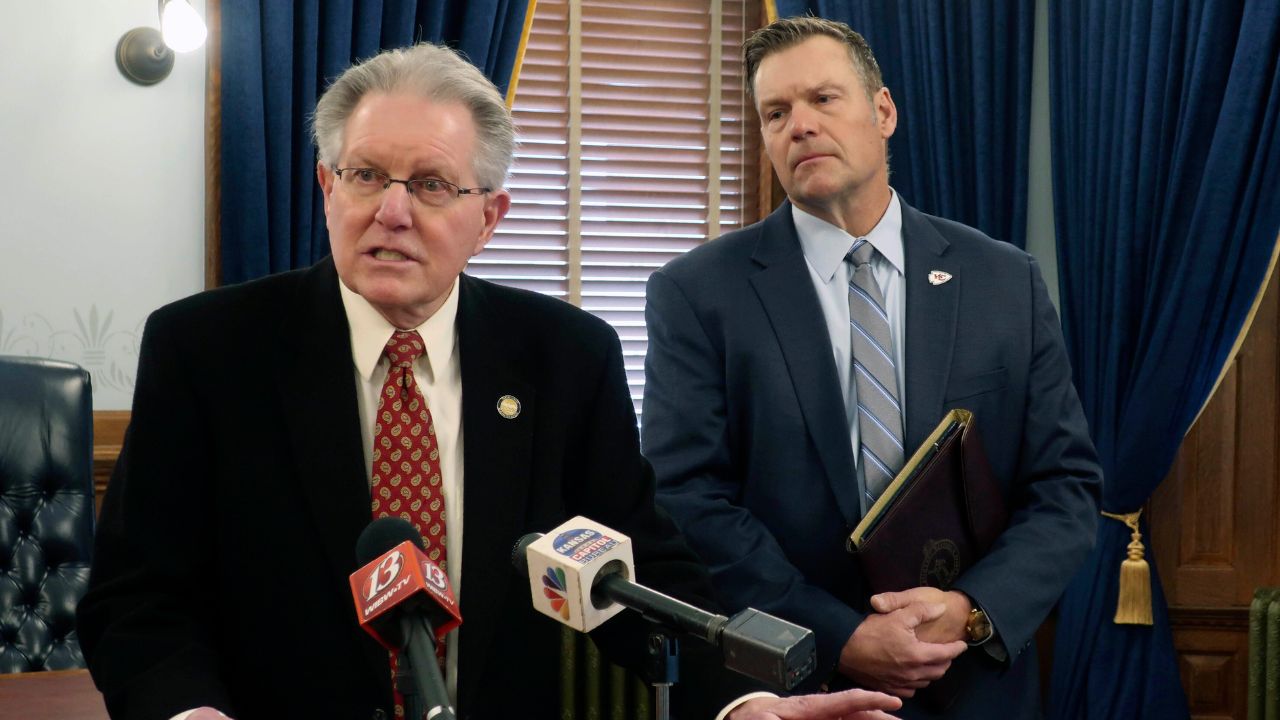Kansas Governor Vetoes ‘Foreign Threat’ Land Ownership Bill: Know More Here
A plan that top Republican lawmakers claimed would shield military bases from Chinese espionage was vetoed by the Democratic governor of Kansas on Friday, killing proposed limitations on foreign property ownership.

Gov. Laura Kelly was charged by the senior Republican in the Kansas House of “apathy” toward China and other countries that the US government has designated as rivals “of concern,” such as North Korea, Cuba, Iraq, and Venezuela, as well as major risks to national security. Within 100 miles of any military post, including most of Kansas, the bill would have made it illegal for foreign nationals from those nations to hold more than 10% of any non-residential property.
According to research released by Kansas State University last autumn, 2.4% of the 49 million acres of privately owned agricultural land in the state was owned by foreign persons and organizations, with Chinese ownership accounting for just one acre of that total. The law would have mandated that the institution create yearly reports detailing foreign real estate ownership, including company property used for non-agricultural purposes.
In her veto letter, Kelly stated that although Kansas needed more defence against foreign enemies, the law was “overly broad” and may jeopardize “legitimate investment and business relationships.”
“I am not willing to sign a bill that has the potential to hurt the state’s future prosperity and economic development,” Kelly said in her veto message.
The International Trade Administration of the U.S. Department of Commerce estimates that Kansas exported goods valued at $14.1 billion in 2023. With $848 million in exports, China ranked as its fourth-biggest trading partner behind Japan, Canada, and Mexico.
However, Kansas already prohibits corporations from owning agricultural land. The National Agricultural Law Center notes that foreign land ownership is restricted in more than 20 other states.
A Chinese surveillance balloon crossed American skies for several days in early 2023 before it was shot down. It passed over northeast Kansas, which is home to Fort Leavenworth, the U.S. Army’s academy for training commanders. This heightened interest in Kansas in placing limits on foreign land ownership, even though there were previous reservations due to the establishment of a national biosecurity lab close to Kansas State University.
One of the most outspoken advocates of the bill, Republican Chris Croft, the majority leader of the Kansas House and a retired Army officer from Kansas City, claimed that Kelly’s veto left the country’s military installations and other vital infrastructure “wide open for adversarial foreign governments.”
Following the veto, Croft released a statement saying, “The resources of this state are too important for us to sit on our hands and wait until it’s too late.”
Kris Kobach, the attorney general of Kansas, and other conservative Republicans advocated for even more stringent regulations. Kobach supported a bill that would outlaw foreign ownership of any land larger than three acres, with an exception allowed by a newly established state board.
“Despite the governor’s apathy, we’ll continue to work to protect Kansas and its citizens from those foreign bad actors who wish to exploit land ownership loopholes,” House Speaker Dan Hawkins, a Wichita Republican said.
The limitations prompted some Republicans in the state Senate to object, and it seemed that the bill was barely supported by the two-thirds majority needed to overcome a veto. According to the law, impacted foreign people and businesses would have had two years to sell their Kansas assets.
Opponents said that xenophobia was the reason behind the bill’s approval. They proposed that the primary outcome would be to compel immigrants, especially those escaping oppressive governments, to liquidate their eateries and retail establishments.
Before the bill was put to a vote, Kansas City, Democratic state representative Melissa Oropeza stated, “To the extent that this bill affects anyone, it affects everyday people, those who are trying to live the American dream.”


Comments are closed.